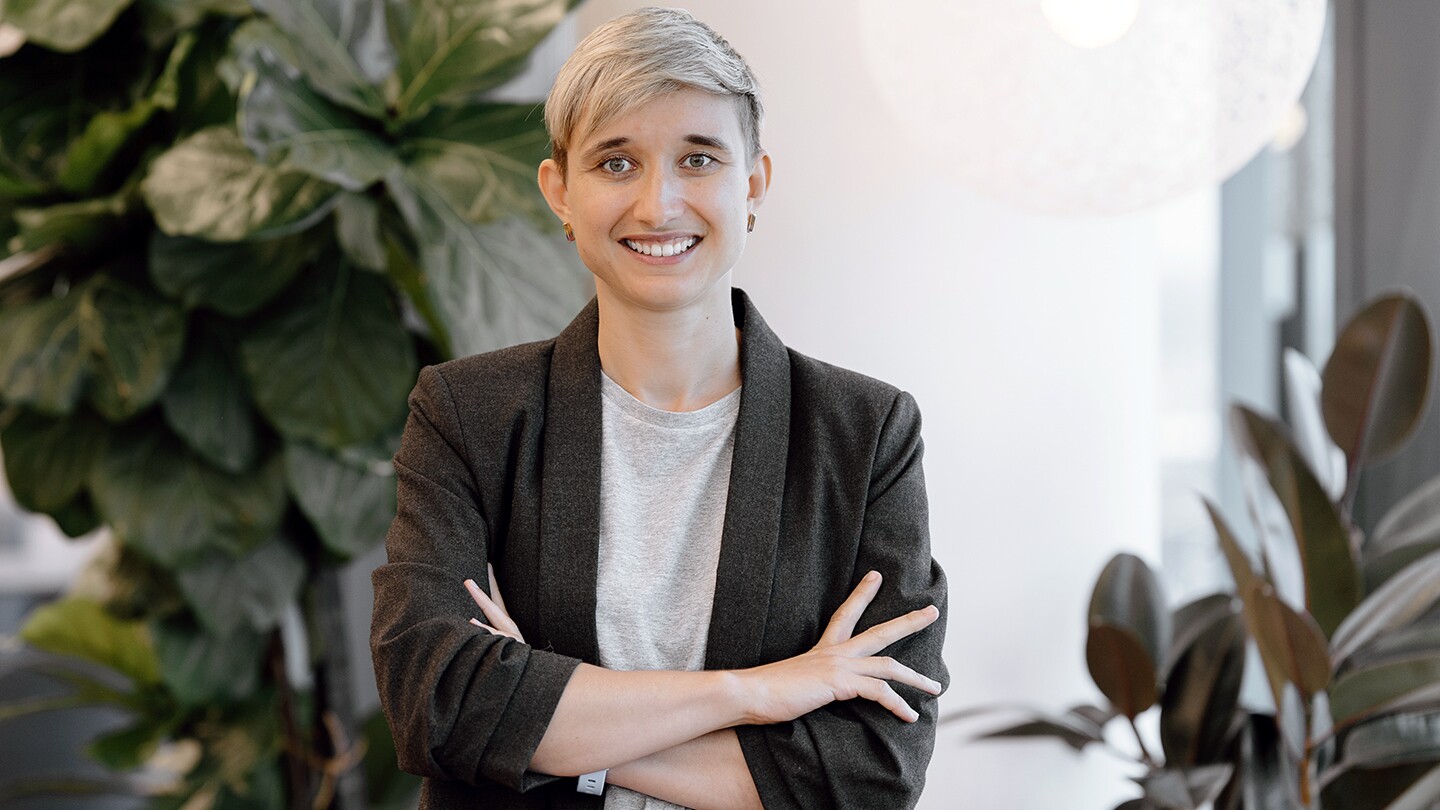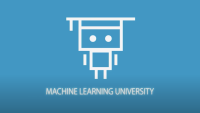Today Olga Moskvyak works as an applied scientist, pursuing — among other things — computer vision projects to help Amazon customers. But that role is not one she envisioned as a child growing up in Russia.
As a child, Moskvyak enjoyed being presented with challenges and solving interesting math problems, particularly in geometry.
“I liked that the arguments in math were logical and indisputable. It provided some clarity to me,” she said. Her love of math, and what she calls its “elegant solutions” led her to pursue an undergraduate degree in that subject at Lomonosov Moscow State University, one of the highest-ranked universities in Russia.
However, initially she couldn’t envision many possible career applications for her degree. “We solved abstract problems and proved theorems,” she recalled. As a result, she wasn’t inspired to pursue advanced degrees.
Instead she turned to systems consulting, a role that provided her the opportunity to travel the world and work with clients in pharmaceutical, gas, and mining industries. That experience led her to consider the idea of leaving Russia to live life abroad, and to return to school.
Leaning on her experience in systems consulting, Moskvyak pursued a master’s in information systems at Central Queensland University (CQU) in Australia. She said she chose Australia because it presented her with an array of educational and cultural opportunities. Following swiftly on the heels of that major change was yet another: Moskvyak became a mother.
That combination of life events proved to be profound in more ways than she might have imagined.
“During that time, I was taking any side project I could in order to stay relevant,” she recalled. That was when Mary Tom, a lecturer in CQU’s School of Engineering and Technology who taught several of Moskvyak’s master’s courses, suggested she take a role as a research assistant in an intriguing project. Moskvyak jumped at the opportunity.
Their goal: develop optimization methods to generate a healthy diet for people with diabetes or cancer so that their nutrition intake is balanced. While she was working on that project, a fellow student asked Moskvyak if she had ever tried using machine learning (ML) to solve that problem.
Learning about machine learning
Moskvyak wasn’t familiar with machine learning at the time, so she took an online course. “I was surprised with how easy it was to understand for me because it was all based on math, on linear algebra,” she recalled. As she learned more, she became excited about the potential applications of ML. So she switched gears yet again, choosing to pursue a PhD in computer science.
To gain the necessary research experience, she next contacted Frederic Maire, a senior lecturer at the Queensland University of Technology who, at that time, was applying machine learning to a marine wildlife conservation project. “He agreed to collaborate, so I started working on that project and wrote a paper, which was accepted for an Australian computer vision conference [DICTA],” Moskvyak said.
That paper, “Learning geometric equivalence between patterns using embedding neural networks”, noted the “motivation for our work is the lack of fully automated identification systems for manta rays”. Identifying manta rays is important because, owing to commercial fishing, manta rays have become vulnerable to extinction, making tracking them an essential task.
That tracking is achieved by focusing on the unique patterns on their underbellies. Visual identification based on those patterns enables scientists to track individual manta rays and achieve a better understanding of patterns and habitat use.
At the time, the paper observed, “most deep neural network based recognition systems become brittle when the view point of the camera changes dramatically.” The authors demonstrated “that a relatively simple class of neural networks can distinguish between patterns under a wide range of viewing conditions”.
“Recognizing manta ray patterns manually from photos is a hard and time-consuming job. So, we automated the process,” Moskvyak said. The work has other important potential applications as well. The same technology can be used to identify different species of sharks and whales, which also have unique coloring that helps scientists track them. It also helped Moskvyak see the real-world applications of ML.
“What I loved about this work is that, at first, I didn’t know anything about the domain. But, over the course of the project, I dove deeper into the subject, talked to the experts, and read about it to understand the problem better, and then see how I could apply machine learning to develop a solution,” Moskvyak said.
Toward the end of her PhD, as Moskvyak started to consider different career possibilities, she discovered that Amazon was seeking science interns in Australia. She was drawn to the opportunity to work on applied science.
She applied, began her internship in July 2021, and immediately found an opportunity to utilize her computer vision experience.
Over the course of six months, she developed a project to support Amazon Marketplace sellers by automatically filling in information about their products based on the images they upload.
“We use the power of computer vision to understand as much of the product as we can based on the images,” she explained. “Computer vision speeds up the process, improves the data quality, and reduces the manual errors.”
A global community of scientists
At the end of her internship, Moskvyak did something her younger self deemed unlikely: She secured a full-time applied scientist position at Amazon. Having mentors from different teams facilitated that transition, she says. Thanks to them, by the end of the internship she had a good understanding of Amazon’s work culture and how scientists strive to innovate on behalf of customers.
As a full-time applied scientist, she continues to work with multiple mentors. One of them is Keir Simmons, an applied scientist on the JP Retail Science team at Amazon Japan who she connected with via the Day 1 Science Mentorship (D1SM) Program. The D1SM program pairs up new-hire scientists with experienced Amazon scientists to ease the transition into Amazon’s business culture.
She has also enjoyed the opportunity to work on larger teams. “As an intern, I worked on a one-person project to showcase my skills. But now I have the opportunity to collaborate closely with other scientists and help deliver bigger projects combining our knowledge and skills.”
She is currently working on a computer vision project to help customers try out certain products virtually.
“It’s an exciting new area and I can see a real impact in the future,” she said. The project involves working with colleagues and teams from different parts of the world, like Canada and Japan. “In Australia, sometimes we feel a bit isolated working on technology or science. But, at Amazon, I feel more connected to the world.”
Promoting women in machine learning
Moskvyak’s interest in mentorship also extends to her serving as a mentor in independent online and in-person machine learning courses, helping others begin their journey in her field. She is especially interested in promoting and supporting women because she understands what it means to navigate a career in science as a woman and a mother.
“I see progress. But I think we still need to do more to bridge this gender gap,” she says. “We need to support our kids, their learning experiences, and help them build confidence.” An advantage of being at Amazon, she says, is being able to connect with more experienced women and talk about their career paths, and how they’ve navigated motherhood and career.
One piece of advice she offers to younger researchers is that even small steps matter.
“Sometimes I felt that all of these achievements were so far away,” she said. “But when I continued to work, even doing simple things and learning a little every single day, I was able to look back a year later and see the progress I’d made. That is what really motivated me.”






















